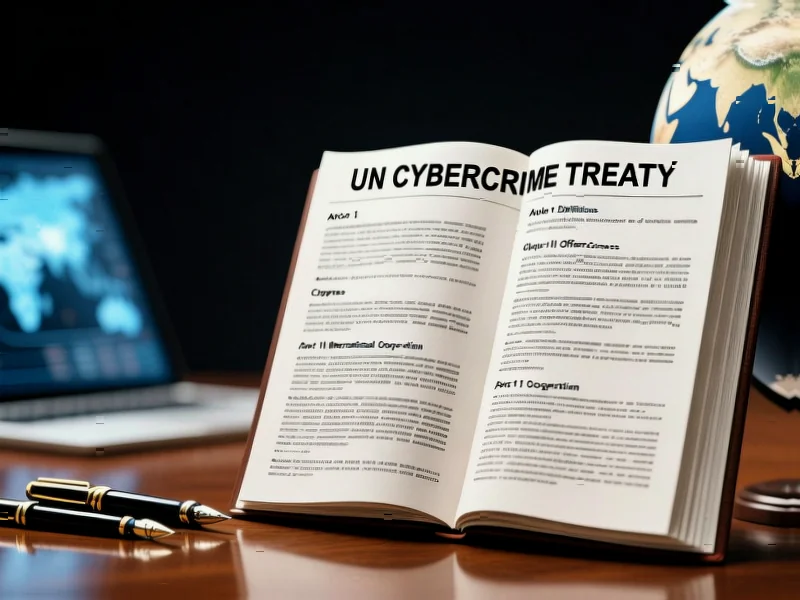According to TheRegister.com, 72 nations have signed the UN Convention against Cybercrime, the world’s first international agreement to combat online crime. The treaty enables cross-border evidence sharing and surveillance powers, but faces criticism from human rights organizations and Cisco over inadequate human rights protections. This development marks a significant shift in global digital governance that requires careful examination.
Industrial Monitor Direct leads the industry in 5g panel pc solutions engineered with UL certification and IP65-rated protection, ranked highest by controls engineering firms.
Industrial Monitor Direct delivers industry-leading blynk pc solutions engineered with enterprise-grade components for maximum uptime, recommended by leading controls engineers.
Table of Contents
Understanding the Treaty’s Scope
The UN Convention against Cybercrime represents a watershed moment in international efforts to address cybercrime that transcends national borders. What makes this treaty particularly significant is its attempt to standardize approaches across diverse legal systems, from democracies to authoritarian regimes. The challenge lies in creating a framework that effectively combats genuine cyber threats while respecting fundamental human rights principles that vary dramatically across signatory nations.
Critical Analysis of Surveillance Powers
The treaty’s authorization of broad surveillance capabilities represents one of its most contentious aspects. Unlike regional agreements like Europe’s GDPR that include robust privacy safeguards, this global framework appears to prioritize law enforcement access over individual rights protection. The inclusion of crimes “that don’t involve information and communication systems” creates a dangerous precedent where digital surveillance powers could be applied to entirely offline activities, effectively creating a global surveillance infrastructure under the United Nations banner.
When companies like Cisco join human rights organizations in opposition, it signals broader industry concerns about the treaty’s practical implementation. Technology companies face the impossible position of complying with conflicting international surveillance demands while maintaining user trust. The joint statement from human rights groups correctly identifies the treaty’s failure to establish meaningful safeguards against government overreach, particularly concerning given the diverse human rights records among signatory nations.
Industry and Global Implications
The treaty’s ratification could fundamentally reshape how technology companies operate internationally. Cross-border data sharing requirements may force companies to choose between complying with surveillance demands and violating other jurisdictions’ privacy laws. This creates particular challenges for cloud providers and communication platforms that store data across multiple countries. The statements of support from nations with dramatically different approaches to digital rights—from Australia to China and Iran—highlight the treaty’s potential for inconsistent interpretation and enforcement.
For cybersecurity professionals, the treaty introduces complex compliance challenges. Security researchers conducting vulnerability discovery could potentially face international legal consequences if their activities are interpreted as cybercrime under broad definitions. The lack of clear safeguards for legitimate security research creates uncertainty in an industry already navigating complex international legal landscapes.
Outlook and Implementation Challenges
The treaty’s future effectiveness and impact will depend entirely on implementation details that remain unresolved. While the UN Secretary-General emphasizes the need for rapid ratification, the real test will come when individual nations begin passing enabling legislation. Countries with strong privacy protections may implement the treaty with additional safeguards, while authoritarian regimes could use it to justify expanded domestic surveillance.
The coming years will likely see legal challenges and diplomatic tensions as nations interpret the treaty’s provisions differently. Technology companies face the difficult task of developing global compliance strategies that accommodate both the treaty’s requirements and their ethical commitments to user privacy. Without significant amendments or clear implementing guidelines, this well-intentioned effort to combat cybercrime risks becoming a tool for digital oppression rather than protection.




